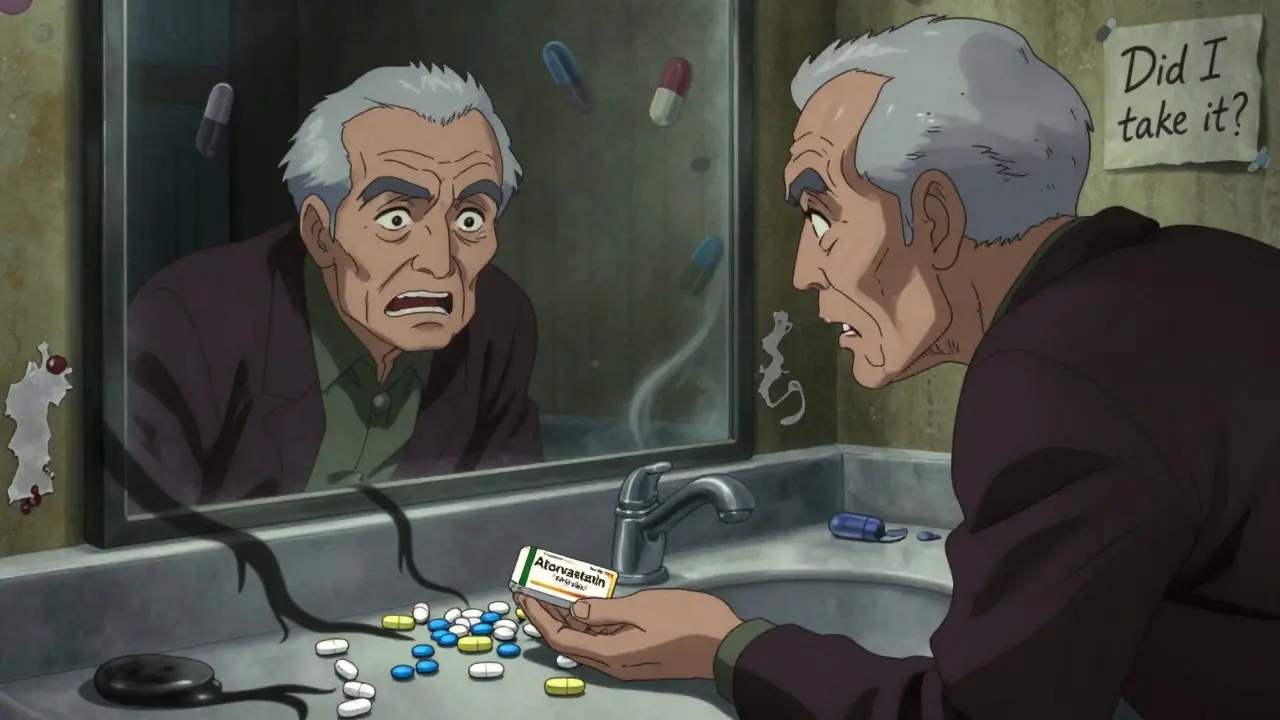Medication Adherence: Simple Strategies to Keep You on Track
Missing a dose or stopping a drug early can undo weeks or months of progress. The good news? You don’t need a complicated plan to stay consistent. A few everyday habits can make your medication schedule feel as natural as brushing your teeth.
Why Adherence Matters
When you take medicines exactly as prescribed, you give the drug a chance to work its magic. Blood pressure meds, for example, need steady levels in your bloodstream; a single slip can cause spikes that strain your heart. Similarly, antibiotics must be taken for the full course, otherwise bacteria can survive and become resistant. That’s why doctors stress adherence – it protects your health and prevents costly setbacks.
Beyond the clinical side, sticking to your regimen builds confidence. Each check‑off on a pill calendar reinforces the idea that you’re in control of your treatment. Over time, that confidence turns into a habit, and habits need far less mental effort.
Easy Ways to Build an Adherence Routine
1. Link meds to daily anchors. Pair each dose with something you already do, like breakfast, your morning coffee, or bedtime brushing. The anchor triggers a reminder without extra thinking.
2. Use a pill organizer. A weekly tray with compartments for morning, noon, and night doses visualizes what’s taken and what’s pending. It’s quick to glance at and saves you from sorting bottles each time.
3. Set phone alarms. A simple beep at the right hour is harder to ignore than a vague mental note. Label the alarm with the medication name so you know exactly what to take.
4. Keep meds visible. Store oral tablets in a spot you’ll see – on the nightstand, beside the coffee maker, or next to your toothbrush. Out‑of‑sight often means out‑of‑mind.
5. Talk to your pharmacist. Ask for a printed schedule or a refill reminder service. Pharmacists can spot interactions, suggest dosage tweaks, and confirm you’re getting the right amount.
6. Plan for travel. Pack a small travel pouch with enough medication for the trip plus a day extra. Carry it in your hand luggage to avoid lost luggage dilemmas.
7. Track side effects. Write down any new symptoms. If a drug feels off, you’ll have concrete notes for your doctor, and you won’t stop it blindly.
8. Involve a buddy. Share your schedule with a family member or friend who can check in. A quick text asking “Did you take your meds?” can be a lifesaver on busy days.
Remember, the goal isn’t perfection but consistency. If you miss a dose, don’t panic – check the medication guide or call your pharmacy to know the next step. Getting back on track quickly prevents gaps from turning into larger problems.
Putting these tricks together creates a personalized adherence system that fits your lifestyle. Start with one or two changes, watch how they feel, and add more as you get comfortable. Soon, taking your medication will feel as automatic as checking the time.
Staying on medication isn’t about willpower alone; it’s about making the right environment, reminders, and support work for you. Follow these simple steps, and you’ll keep your treatment effective while freeing up mental space for everything else you care about.

- Feb 11, 2026
- SkyCaddie Fixer
- 15 Comments
Generic Appearance Changes: Understanding Pill Colors and Shapes
Generic pills often look different from brand-name drugs or even from previous refills due to trademark laws. These appearance changes can lead to confusion, missed doses, and health risks - especially for older adults managing multiple medications.

- Jan 10, 2026
- SkyCaddie Fixer
- 15 Comments
How to Simplify Complex Medication Regimens for Older Adults
Simplify complex medication regimens for older adults by reducing pill burden, combining doses, and aligning schedules with daily life. Proven strategies improve adherence and independence without compromising health.
- Oct 22, 2025
- SkyCaddie Fixer
- 14 Comments
Why Patient Education and Adherence Matter for Successful Luliconazole Treatment
Learn why patient education and proper adherence are critical for successful Luliconazole treatment, with practical tips, common barriers, and a clear comparison to other antifungals.

- Sep 21, 2025
- SkyCaddie Fixer
- 16 Comments
Managing Stress While on Heparin Sodium: A Guide to Psychological Well‑Being
Learn how to cope with anxiety and stress while taking Heparin sodium. Practical tips, expert insights, and a comparison of anticoagulants help protect both heart and mind.
